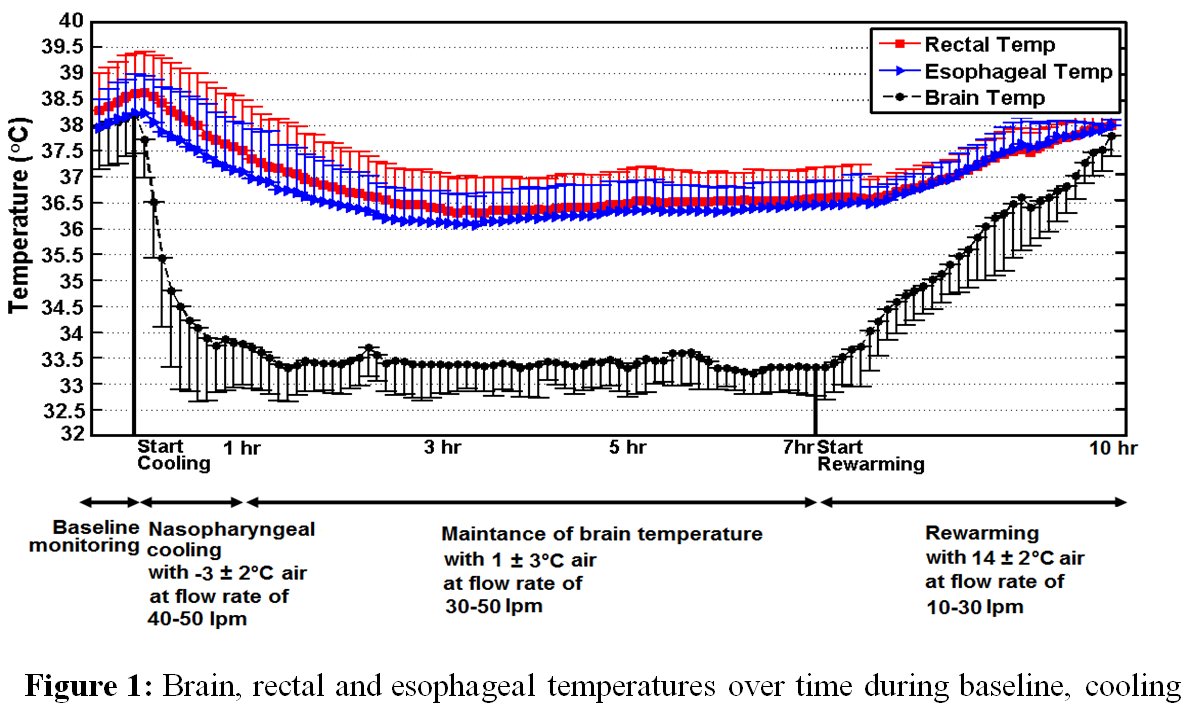
Background
Brain cooling (hypothermia) has been shown to prevent brain injury (neuroprotection) from stroke, brain trauma and cardiac arrest in both animal models and patient studies. Currently, the main hurdles in the clinical application of hypothermia are: 1) most brain cooling methods also cool down the rest of the body with its associated complications including systemic abnormal blood clotting (coagulopathy), heart attack (myocardial ischemia) and others; 2) to limit these deleterious effects of whole body cooling, only mild hypothermia, in which the brain is cooled to 34oC, has been used in clinical settings, but additional neuroprotection may be achieved by selectively cooling the brain quickly to below 34oC; and 3) there does not exist a simple, effective and non-invasive method to selectively cool down the brain below 34oC that can be readily applied in clinical settings.
Description of the Invention
The method we are developing, which has already been demonstrated in preliminary experiments on normal animals, overcomes all the drawbacks discussed above. It is based on a novel method of generating and blowing cold air into the nostrils (Figure 1). The equipment is simple, robust and compact making it suitable for use at the bedside of patients including on ambulances en route to hospitals. As such, it can be applied for the following indications: cardiac arrest, head trauma, stroke and neurodegeneration (deterioration of brain anatomically as well as functionally). A patent application for this innovative method and apparatus for achieving selective brain cooling has been filed.

We have obtained funding from the Western Innovation Fund to demonstrate neuroprotection in rabbit models of focal stroke and concussive head trauma. These results will provide justification for phase 1 and 2 clinical trials on patients who are at risk of brain injury from stroke, cardiac arrest and head trauma. Positive results from these clinical trials would pave the way for Health Canada and US FDA approval of our technology.
Patent Status
• PCT application filed.